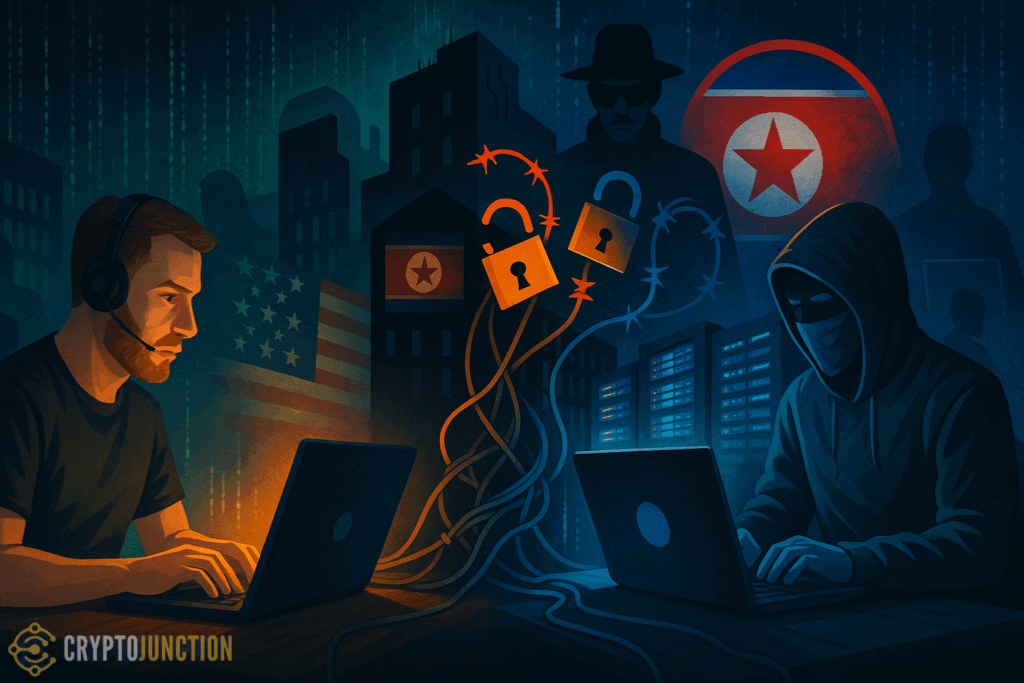The U.S. The Justice Department reports that North Korea’s remote work scheme targeted American companies. The scheme involved the isolated regime passing off individuals as average Joes. They got remote jobs to carry out crypto theft and report back with details of data breaches. This scheme had national security implications.
Reports confirm that the scam affected over 100 American entities, including well-known tech and defense companies. North Korean workers infiltrated systems using stolen identities. They used these identities to gain access to private info and financial systems. The Justice Department reported two main indictments, one arrest, and the seizure of 29 financial accounts related to the issue.
Scammers exploited remote work security gaps by posing as fake “VC-backed” startups used as payment vehicles. They targeted and compromised over 80 American identities in the fraud.This scheme, which operated on a large scale for many years, benefited North Korea’s sanctioned weapons programs. It is one of the boldest in recent years.
North Korea’s Remote Work Scheme Included Laptop Farms
The North Korea remote work scheme involved creating setups called laptop farms. These setups made remote workers appear to be based in the U.S. Federal agents raided 20 of these setups across 16 states and seized 130 laptops. Victim companies’ machines were used in the operation.
Financially that was a huge hit. Over $900K in crypto stolen from two companies. Facilitators got over $696K and saw play out in over $3M in business damages which included legal and security measures. The operators used Tornado Cash and shell companies which they ran with fake Malaysian ID.
The issue wasn’t confined to the U.S. The involvement of Chinese and Taiwanese in the mix which ran $147.5 million through crypto mixing services in another case. This international network of players worked together to break international sanctions and support North Korea’s arms division.
Threatens Corporate Security
The DOJ reported that the North Korean remote work scheme has reached a serious scale, granting access to trade secrets, AI resources, and even military information subject to arms control. The scheme also impacted over 500 of the largest U.S. companies, along with major financial institutions and several government entities.
Although most federal systems resisted the attack, the campaign exposed core weaknesses in remote work management. Justice Department officials urged American companies to strengthen identity verification, track equipment locations, and secure crypto transactions more effectively.
This case marks a first-of-its-kind report on modern espionage, where job fraud serves as a tool of international subversion. Moreover, the investigation remains active, and authorities have indicated that more arrests may follow.

